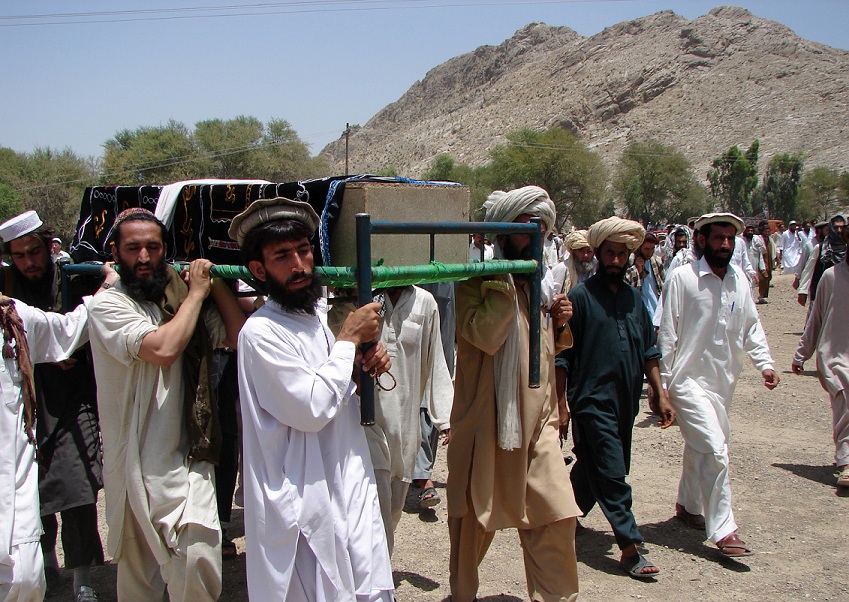
It can be tough to follow all of the developments on drones, Guantanamo and torture, as these issues are constantly evolving though government policy-making and public debate.
So here’s a quick round up of important news you should know, along with links to take action and make your voice heard. While drones, Guantanamo and torture can seem distant from your regular life, these issues affect all of us, because they undermine the rule of law and the human rights framework, both here at home and around the world, making us all less safe.
1) Debate is swirling about whether drone operators killing people in Pakistan, Yemen, Somalia and elsewhere by remote control from the U.S. should be awarded medals. Mark Mazzetti of the New York Times wrote the initial article and Gabor Rona of Human Rights First added his thoughts. If you want to skip the debate and urge the government to end unlawful killing with drones, take this action.
2) New allegations about the unethical use of mind-altering drugs on Guantanamo detainees have surfaced. The Department of Defense Inspector General claims nothing inappropriate happened, but Guantanamo defense lawyers disagree. The case of Abel al Nusairi indicates that drugs may have been used during interrogations–a possible violation of medical ethics and international law.
3) The Guantanamo detainee population dropped by 1 to 168 after Ibrahim al Qosi was released to Sudan as the result of a plea deal. His release was far from certain since the U.S. government claims the right to continue to hold anyone, regardless of any deals or military commission judgments. That’s right, even if you were to be cleared by your military commission, the government could still decide to keep you locked up forever—a violation of the right to a fair trial and the right to due process (compounding concerns Amnesty International has long raised about the military commissions).
4) Speculation continues about why Guantanamo detainee Omar Khadr—held by the U.S. since he was a child—has not yet been returned to Canada, after having agreed to a plea deal. Some blame Canada, others blame the U.S. Respect for human rights law would have solved the problem long ago. Children are entitled to rehabilitation and other special rights under international law, an obligation the U.S. has ignored at Guantanamo.
5) Charges were dropped against Guantanamo detainee Faiz al Kandari amid reports that the U.S. and Kuwait are in talks about returning al Kandari and the other Kuwaiti at Guantanamo, Fawzi al Odah, home to Kuwait. Amnesty activists have long called for them, and all other Guantanamo detainees, to either be charged and fairly tried or released to countries that will respect their human rights.
6) Former CIA operative Sabrina de Sousa tells the Washington Post her side of the story on the rendition to torture of Abu Omar—a crime for which Italian prosecutors are pursuing her and other U.S. officials. Choice quote: “It was kidnapping…Don’t worry, I’m not a criminal.” Amnesty continues to press for full accountability for U.S. torture and rendition, including declassification and release of the Senate Select Committee on Intelligence’s forthcoming report on CIA torture.
7) On July 17th military commission proceedings at Guantanamo resume in the case of Abd al Rahim al Nashiri, accused of responsibility for bombing the USS Cole, an attack that killed seventeen people. Al Nashiri was threatened with death by a drill to the head during an interrogation. The issue of torture-tainted evidence and the fairness of Guantanamo commissions will be in the minds of court-watchers.
Also the NDAA process will start up again soon in the Senate, where our elected officials may decide to reaffirm last year’s embrace of indefinite detention, roll it back or ignore it. Let your Senators know what you think about the NDAA.
